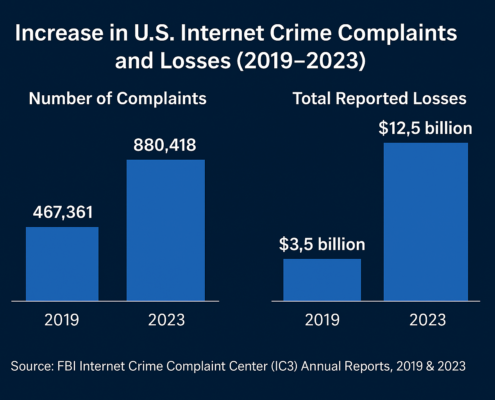ASNs: A Critical Component for Network Efficiency
28 July 2023In the digital ecosystem, think of IPv4 addresses as the postal mail of the internet, where an Autonomous System Number (ASN) represents the crucial postal code for its operational domain.
An ASN is a distinct identifier allocated to a network or group of IP prefixes managed by one or more network operators, upholding a unified, specific routing policy. Known as an autonomous system, these entities leverage ASNs to facilitate efficient routing information exchange among themselves and with Internet Service Providers (ISPs). In essence, ASNs serve as the cornerstone of routing policy in today’s exterior routing framework, aligning with the principles outlined in RFC 1930 Section 3.
For network operators and ISPs aiming to optimize routing efficiency and policy management, understanding and utilizing ASNs is non-negotiable.
Routing Policy Overview
A crucial element in network management, the routing policy constitutes the framework established by network administrators. This framework dictates the trajectory of outbound data across different networks. While it can influence the routes of incoming data, absolute control remains elusive.
Understanding ASNs: A Technical Breakdown
ASNs are pivotal in network routing, available in two distinct classifications:
- 2-byte ASN: Utilizing 16-bit numerals, this format offers 65,536 unique ASNs. However, this 16-bit space is now fully allocated, with new assignments only occurring through returns to an RIR or broker-mediated transfers.
- 4-byte ASN: Expanding capacity with 32-bit numbers, this format opens up access to over 4 billion ASNs.
The Importance of ASNs
ASNs are not just technical necessities; they are the backbone of efficient network communication and routing. Their role is critical for organizations navigating the complex web of the internet infrastructure, ensuring seamless data flow and connectivity.
In an era where digital presence equates to global reach, understanding when and why an organization requires an ASN is not just beneficial—it’s imperative for sustained operational efficacy and strategic network planning.
Understanding BGP: The Backbone of Internet Connectivity
In the decentralized world of network operation, decision-makers strategically choose their interconnections. These connections are identified through ASNs, serving as unique identifiers for networks to communicate their reachable IP networks and preferred routes for distant connections.
The Role of Autonomous Systems
Autonomous Systems (AS) utilize numerical identifiers, sidestepping the pitfalls associated with non-unique names and the complexities of rebranding. This numerical approach mitigates the risk and cost associated with changes in routing policies, ensuring stability and efficiency.
Routers, the pivotal devices in data packet forwarding, leverage routing protocols to dynamically determine the most efficient pathways to IP addresses, optimizing network performance.
Border Gateway Protocol (BGP), the cornerstone of internet routing, empowers networks to navigate the vast digital landscape of the internet by utilizing ASNs to delineate each independent network’s territory. This protocol is the linchpin in the seamless flow of data across the internet, embodying the essence of connectivity and communication in the digital age.
Navigating ASN Requirements for Your Network
Determining the necessity of an Autonomous System Number (ASN) is crucial for organizations aiming to optimize their network connectivity strategies. If your organization is strategizing on how to enhance its network interconnectivity, acquiring an ASN becomes essential. Consider the following scenarios:
- Your organization mandates annual bidding for internet connectivity contracts, ensuring competitive rates and services.
- Your network infrastructure necessitates connections to multiple external networks for operational efficiency.
- You aim to establish peering relationships with other networks at Internet Exchange Points (IXPs) to improve network performance and reduce latency.
In these instances, securing an ASN is not merely an option but a strategic move to maintain control over your network routing policies and foster robust connectivity with other networks. It’s a step towards enhancing your organization’s technical prowess in a fast-evolving digital landscape.
ASN Eligibility Criteria: A Comprehensive Guide
To secure an ASN, applicants must engage with their respective Regional Internet Registry (RIR), ensuring compliance with established policy prerequisites. Each geographical sector is under the purview of a dedicated RIR.
Distinctly, APNIC and LACNIC extend their services through National Internet Registries (NIRs), mirroring RIR policies while catering to local requisites more intimately.
In delineating ASN qualifications, ARIN adheres to the framework set forth in RFC 1930, Section 3 (https://www.rfc-editor.org/rfc/rfc1930), a pivotal document sanctioned by the IETF. This citation underscores ARIN’s commitment to leveraging authoritative guidelines in its operations.
RFC 1930 encapsulates the essence of ASNs as “units of routing policy in the contemporary realm of exterior routing,” offering a precise depiction of their operational significance.
In this fast-evolving digital landscape, understanding the intricacies of ASN allocation is crucial for entities aiming to navigate the complexities of internet architecture with authority and precision.
Regional Internet Registry (RIR) Services
- AFRINIC: Covers Africa and selected Indian Ocean territories.
- APNIC: Encompasses parts of Asia and Oceania.
- ARIN: Serves Canada, numerous Caribbean and North Atlantic islands, and the United States.
- LACNIC: Responsible for Latin America and certain Caribbean regions.
- RIPE NCC: Operates in Europe, the Middle East, and Central Asia.
The fundamental policy mandates that entities must demonstrate credible plans for connecting to two or more distinct networks, necessitating a unique routing policy. This requirement, while seemingly complex, simply implies that networks must have their own address space, ensuring policy uniqueness without restricting connections to common internet service providers.
Acquiring an ASN
Brander Group stands at the forefront as a premier broker of IPv4 addresses, offering a seamless and transparent platform for both purchasing ASNs and overseeing sales processes. Catering to businesses seeking either private brokerage services or access to public online auction marketplaces, our team delivers expert assistance, embodying an authoritative and tech-savvy approach to navigating the intricacies of ASN transactions.
With a commitment to rapid, data-driven, and analytical communication, we aim to equip our clients with the necessary tools and insights to advance in the fast-paced tech landscape.
Other Popular Blog Posts
Discover more from Brander Group
Subscribe to get the latest posts sent to your email.



